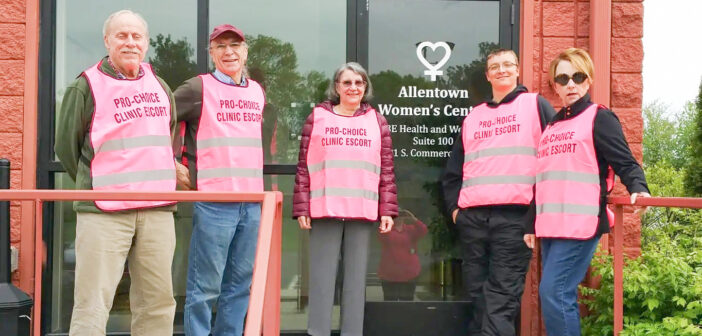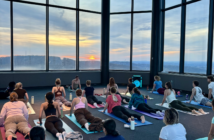The Pennsylvania Supreme Court issued a ruling on Jan. 29 that could expand abortion access in communities like Bethlehem.
The ruling regards the Pennsylvania Abortion Control Act of 1982, which prohibits the use of Medicaid for abortion costs. The act is being challenged by Planned Parenthood and other operators of abortion clinics.
The case was initially dismissed on procedural grounds, but the state Supreme Court revived the lawsuit by requiring a lower court to hear the challenge.
This ruling deals specifically with Medicaid, a government program that provides health insurance for low-income Americans, so the outcome could especially impact residents in Bethlehem, 20% of whom are enrolled in Medicaid, according to the Bethlehem DataUSA profile.
This case is part of the growing national discourse surrounding abortion access since the U.S. Supreme Court overturned the constitutional right to abortion in 2022 in Dobbs v. Jackson Women’s Health Organization.
Since then, the topic of abortion has become a more significant point of debate among many students compared to years prior.
“This issue is much more front of mind for students now than it was just a couple of years ago,” Ziad Munson, a sociology professor who researches the politics of abortion, said.
While a college education affords students the time to consider these types of issues in depth, Munson said, this isn’t the case for the general population, including those in Bethlehem.
“They’re not philosophers thinking about the larger issues of whether it’s women’s rights or the rights of the fetus,” Munson said. “They’re thinking about if their house is dirty or that they need to get a card for grandma.”
Given the differences in students’ backgrounds, some faculty at Lehigh said it’s not uncommon for students to look past crucial factors of abortion access.
For those involved in the recent ruling, the question at hand concerns how low-income individuals can have the same access to reproductive care as their wealthier counterparts.
“Abortions are not particularly expensive as medical procedures go,” Munson said. “But given how common abortion procedures are, and the growing inequality in our country, financial hardship can be a very real barrier to access.”
Like many selective universities, the socioeconomic background of Lehigh students tends to be higher than that of the surrounding population.
In an economic report published by The New York Times, the median household income of Lehigh students is $167,600 compared to $58,232 among Bethlehem residents, as reported by DataUSA.
Stephanie Prevost, professor of practice of law in the College of Business, said people who don’t worry about healthcare costs may overlook those who do.
“They don’t really think about the impacts that laws like the 1982 law would have on other people’s abilities to access abortion, even though it’s legal in Pennsylvania,” Prevost said.
Monica Najar, a history professor and the director of women, gender and sexuality studies, said there may be less media coverage on this case because it’s about Medicaid, as opposed to similar rulings about abortion access.
However, that doesn’t mean the case is insignificant.
Najar said reproductive rights cannot be separated from factors like race and income, as they are often interconnected.
“There is no case where a question of rights only affects one group,” Najar said. “Our rights are intertwined.”
Last semester, engineering major Sophie Tommasi, ‘27, wrote a paper about abortion access across the country and said income wasn’t one of the major factors she considered.
Nonetheless, Tommasi said she felt invested in the topic and wanted to hear more discussion about abortion access among her classmates.
“I think it definitely could be more spoken about because I feel like people don’t talk about it at all,” Tommasi said.
Rita Jones, director of the Center for Gender Equity at Lehigh, said that while the Health and Wellness Center does a good job of providing affordable birth control options to students, concerns related to reproductive care should extend beyond the immediate needs of those on campus.
“I think that it’s really important for everyone to have that, not just students,” Jones said.
The Health and Wellness Center lists reproductive health services on its website, which include gynecology exams and contraception counseling. They offer several options for birth control and emergency contraception, along with free condoms.
Similar services are offered at local facilities in the Bethlehem area; however, the costs can be much higher depending on the type of health insurance an individual has.
In 2021, DataUSA reported that 7.41% of Bethlehem residents were uninsured.
By including residents in the Southside, Jones said, accessibility can go from an individual concern to a community effort.
“That kind of community engagement, in multiple ways, is a powerful one where people can understand other people’s perspectives and maybe advocate for a greater good,” Jones said.
For some, that greater good means allowing others the chance to speak.
“It will mean that those folks with privilege have an opportunity to use their privilege in ways that make a better world,” said Najar. “Sometimes that means talking more, and sometimes that means talking less.”






Comment policy
Comments posted to The Brown and White website are reviewed by a moderator before being approved. Incendiary speech or harassing language, including comments targeted at individuals, may be deemed unacceptable and not published. Spam and other soliciting will also be declined.
The Brown and White also reserves the right to not publish entirely anonymous comments.
1 Comment
Balanced coverage on a controversial topic. TIC